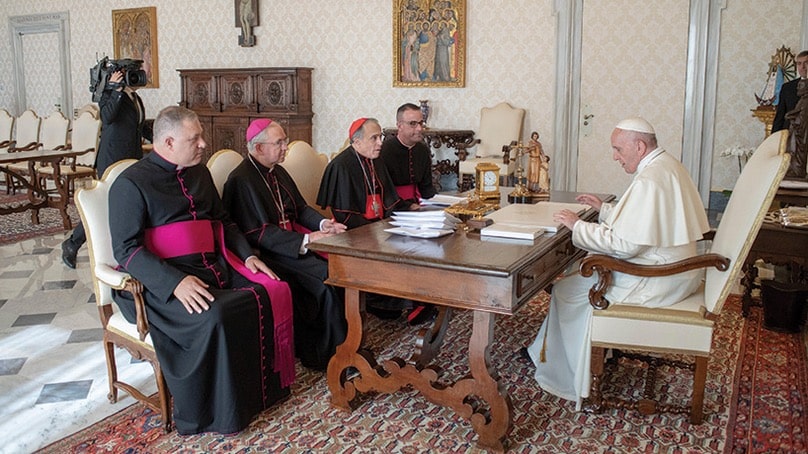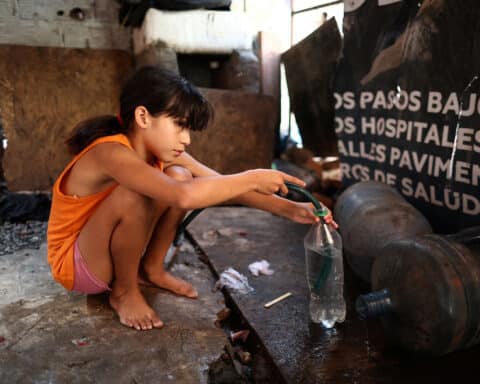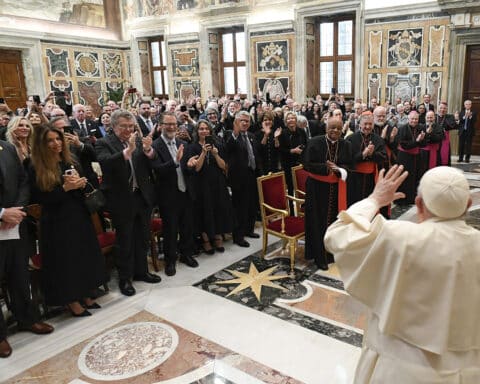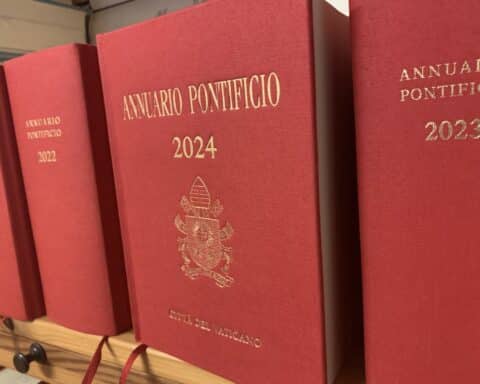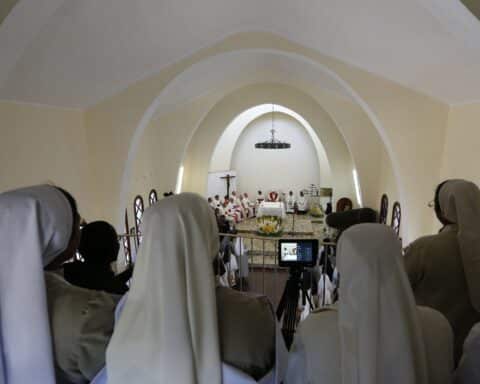A high-level international meeting on clerical sexual abuse, summoned by Pope Francis to take place at the Vatican in February, is simultaneously generating high hopes and notably modest expectations concerning what it will — or won’t — accomplish.
On the one hand, boosters hope the meeting will forge a global consensus on an action plan for local churches. The Feb. 21-24 sessions will involve some 100 presidents of national bishops’ conferences from around the world, along with other Church leaders. On the other hand, skeptics say the meeting’s brevity and the differences that exist from country to country in their legal situations and cultures make a one-size-fits-all formula for fighting abuse unrealistic or unneeded.
No matter whether the skeptics or the boosters turn out to be right, pressure for meaningful results now is aimed squarely at the pope, whose critics accuse him of being slow to catch on to the problem or do much about it until recently. Meanwhile, during the last year alone, major abuse-related crises erupted in Chile, Honduras, Germany and the United States.
Tense questions
The furor in the U.S. was touched off last summer by the disclosure that Archbishop Theodore McCarrick, retired archbishop of Washington, had a long history of sexual misconduct that was apparently known to the Vatican for years. Archbishop McCarrick resigned as a cardinal and is now living in seclusion while a Church canonical process moves forward.
The pressure on Pope Francis was further heightened in December by the reported conviction on abuse charges of Cardinal George Pell of Australia, previously the Vatican’s economic czar and a top papal adviser. Cardinal Pell has denied the charges.
Among the many questions facing the February meeting, possibly the most sensitive is whether and how it will face the issue of homosexuality in the priesthood. Those who consider it to be of fundamental relevance in this context point to findings by researchers studying clerical sex abuse in the U.S. that boys and young men were the victims in eight out of 10 cases between 1950 and 2010. Pope Francis has repeatedly sounded the alarm about active homosexuals in clerical ranks. “It would be better if they left the ministry or consecrated life rather than live a double life,” he said in a book-length interview published last month.
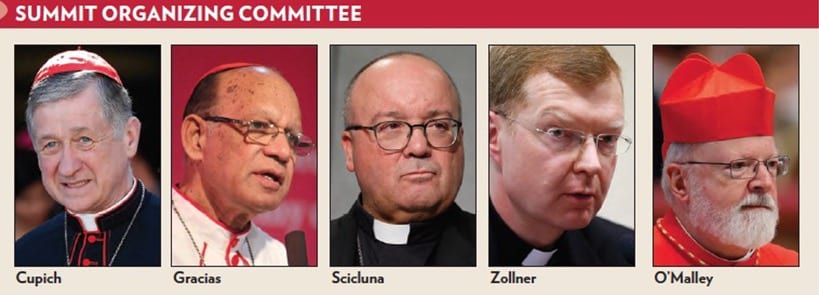
Those in attendance
Besides presidents of bishops’ conferences — in the U.S., Cardinal Daniel DiNardo of Galveston-Houston, Texas — those attending the February meeting will include the heads of Eastern Catholic churches, representatives of superior generals of religious communities, officials of the Vatican Secretariat of State, and heads of several Vatican offices.
Last November the pope named a planning committee that includes Cardinal Blase J. Cupich of Chicago, along with Cardinal Oswald Gracias of Mumbai, India; Archbishop Charles J. Scicluna of Malta, the Vatican’s point man on abuse; and Father Hans Zollner, S.J., president of the Center for the Protection of Minors at Rome’s Gregorian University.
Also involved in preparations is the Vatican’s Commission for the Protection of Minors headed by Cardinal Seán P. O’Malley of Boston. Cardinal O’Malley said the idea for the February meeting originated with his group, and in a written statement he provided a kind of outline of policies he hoped it would endorse.
“We must continue to embrace and practice a commitment to zero tolerance [of abuse by clerics], work for greater transparency, including the release of names of clergy accused of abuse, encourage religious orders to adopt a similar policy, and cooperate with civil and legal authorities,” he said. “Above all else, we must place the support and pastoral care of survivors first.”
In essence, that is the policy adopted by the U.S. bishops in 2002. Since then, the number of reported new cases of clerical abuse of minors has continued to fall, with only 24 new allegations reported in the 12 months that ended June 30, 2017, the most recent year for which numbers are available.
Conflicting proposals
Even so, reacting to the McCarrick disclosures and a grand jury report on past abuse in six Pennsylvania dioceses, the bishops had planned to consider new measures for policing themselves at their November general meeting. Then the Vatican told them to back off.
A leaked letter by Cardinal Marc Ouellet, prefect of the Vatican’s Congregation for Bishops, published Jan. 1 by the Associated Press, said he sought the delay because his congregation hadn’t had time to study the proposals, which it would be called on to approve if the United States adopted them.
But the delay also could have another source rooted in ecclesiology. Among the proposals before the Americans was one for a new commission with a majority of lay members that would receive and judge complaints about bishops alleged either to be guilty of sexual misconduct themselves or to have covered up abuse by others.
It is not unreasonable to suppose the idea of having laypeople judge bishops didn’t sit well in some quarters. Speaking to the bishops after the announcement that the Vatican didn’t want them to vote on the plan, the papal nuncio in the U.S. — who two days earlier had met in Rome with Pope Francis — appeared to chide them for even thinking such a thing.
“There may be a temptation on the part of some to relinquish responsibility for reform to others than ourselves,” Archbishop Christophe Pierre told the U.S. hierarchy. “When it comes to the responsibilities with which we are charged … we must show that we can solve problems rather than simply delegating them to others.”
And, as it happens, Cardinal Cupich, handpicked by the pope to help plan the February meeting, is backing a plan under which a bishop accused of offenses would be judged by the metropolitan archbishop of his ecclesiastical province rather than a lay-led group.
Which could all add up to an interesting four days in Rome.
Russell Shaw is an Our Sunday Visitor contributing editor.

